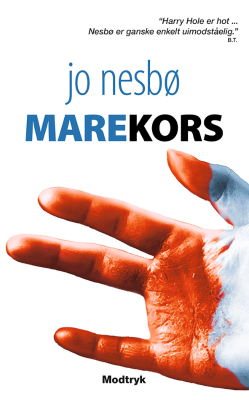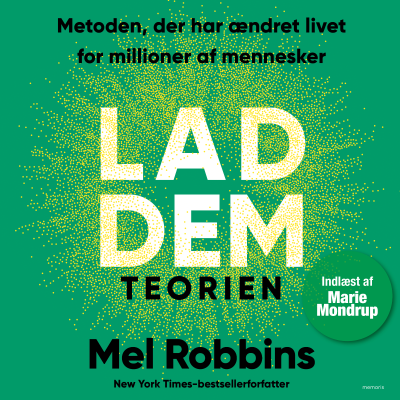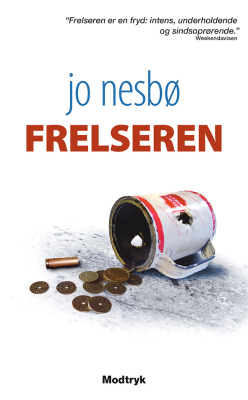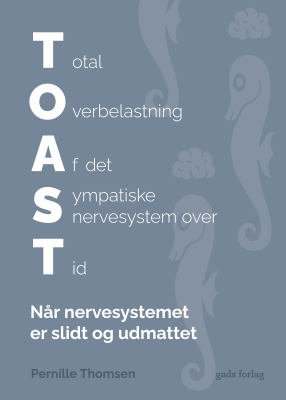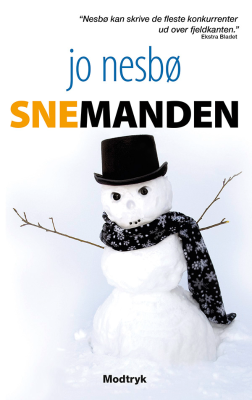
Barbarians at the Gate
engelsk
Personlige fortællinger & samtaler
Prøv gratis i 7 dage
99 kr. / måned efter prøveperioden.Opsig når som helst.
- 20 lydbogstimer pr. måned
- Podcasts kun på Podimo
- Gratis podcasts
Læs mere Barbarians at the Gate
A semi-serious deep dive into Chinese history and culture broadcast from Beijing and hosted by Jeremiah Jenne and David Moser.
Alle episoder
109 episoderDécadence Mandchoue: The wild (and almost certainly fictional) affair between Sir Edmund Backhouse and Empress Dowager Cixi
It’s another Barbarians at the Gate crossover with China Books Review [https://substack.com/profile/424451465-china-books-review]. This month’s China Archives column covers Decadence Mandchoue by Edmund Backhouse, edited and annotated by Derek Sandhaus [https://chinabooksreview.com/2026/02/17/decadence-mandchoue/]. CBR Associate Editor Alexander Boyd and I sat down to talk about all things Backhouse and try to parse one of Sinology’s more controversial memoirs. Backhouse was the son of a British baronet who dropped out of Oxford, fled to Beijing in 1898, and spent the next four decades as a fixer, translator, and professional eccentric in the hutongs. He was also a forger, a fabulist, possibly a fascist sympathizer, and the author of what may be the most explicit expat China memoir ever written. His central claim: an extended sexual relationship with Empress Dowager Cixi. His central problem: almost nobody believed him. And there’s a good reason. He almost certainly invented the whole thing.The real question isn’t whether Backhouse was making stuff up. He was. A lot. The question is whether this gifted fabulist, writing from inside (or at least adjacent to) the world he’s fabricating, can still tell us something real about the fall of the Qing Dynasty. Join us as we explore the decadent world of sex, lies, and power during one of the most tumultuous periods of Chinese history.
Barbarians at the Gate x By Their Own Compass: Emily Hahn's Shanghai
Welcome to a special episode of Barbarians at the Gate. David and Jeremiah are off this week preparing for Chinese New Year, but as a special gift to our listeners, we are cross-posting this bonus episode about the life and China travels of the American writer Emily "Mickey" Hahn. This episode is from By Their Own Compass, a podcast looking at historical travelers and past journeys co-hosted by Jeremiah with travel expert Sarah Keenlyside. Emily Hahn partied with poets (and her pet gibbon) at Shanghai soirees. Wrote biographies while dodging bombs in wartime Chongqing, and did her best to keep herself and her family alive in Japanese-occupied Hong Kong. Along the way, she became famous (some might add “notorious”) for her affairs, including with Chinese writer Sinmay Zau (Shao Xunmei 邵洵美) and the head of British intelligence in Hong Kong, Charles Boxer. Mickey lived through some of China’s most tumultuous moments. While many foreigners experienced these events, Mickey gave her readers an unvarnished look at what was happening, with a style all her own. We hope you enjoy this special bonus episode. Follow By Their Own Compass at bytheirowncompass.com [http://www.bytheirowncompass.com] or search for By Their Own Compass on Apple Podcasts, Spotify, or where you get your podcasts. Links: Books referenced in the episode * China to Me [https://www.amazon.com/China-Me-Autobiography-Emily-Hahn/dp/1497638267] by Emily Hahn * Nobody Said Not To Go [https://www.amazon.com/Nobody-Said-Not-Go-Adventures/dp/0571199658] by Ken Cuthbertson (biography of Emily Hahn) * I Wonder as I Wander: An Autobiographical Journey [https://www.amazon.com/Wonder-Wander-Autobiographical-Journey-American/dp/0809015501] by Langston Hughes * The Soong Sisters [https://www.amazon.com/Soong-Sisters-Emily-Hahn/dp/149764870Xhttps://www.amazon.com/Soong-Sisters-Emily-Hahn/dp/149764870X] by Emily Hahn Tours & Resources: * Historic Shanghai [https://historicshanghai.substack.com/]- walking tours (Patrick Cranley and Tina Kanagarathnam) Further Reading: * Her Lotus Year: China, the Roaring Twenties, and the Making of Wallis Simpson [https://www.amazon.com/Her-Lotus-Year-Roaring-Twenties/dp/1250287472] by Paul French * Hong Kong Holiday [https://www.amazon.com/Hong-Kong-Holiday-Emily-Hahn-ebook/dp/B00J90BZ7E] by Emily Hahn * No Hurry to Get Home: A Memoir [https://www.amazon.com/dp/B00J90BYZM?tag=arcsite-20] by Emily Hahn * Mr Pan [https://www.amazon.com/dp/B00J90C1ZE?tag=arcsite-20] by Emily Hahn
Lost in Thailand: The New Chinese Diaspora from Bangkok to Addis Ababa
It’s high season in Thailand. The weather is perfect. But look around the hotel lobbies and the night markets, and you’ll notice something missing: the tour buses. For the last decade, Thailand bet the house on Chinese mass tourism. Now, that wager is looking shaky. The numbers are down, and the reasons go deeper than just a sluggish post-COVID economy. On this episode, David dials in from Addis Ababa and we are joined by travel writer Thomas Bird (author of Harmony Express), global strategist Yajun Zhang to try and figure out where everyone went and where Chinese travelers are going next. We look at the "scam center" panic that’s terrifying parents on WeChat, the shift from package tours to solo travel, and why a new generation of Chinese tourists might be skipping Bangkok for Singapore. Plus, we look at how the Chinese diaspora is changing the sound of the region—literally. From the streets of Bangkok to the markets of Addis Ababa, is Mandarin replacing English as the default second language of the Global South? In this episode: * The Party and the Hangover: Thailand’s pivot from GI R&R spot to Chinese holiday destination—and the current crash. * The Fear Factor: How viral stories about kidnappings and scam compounds are killing the vibe for mainland travelers. * The New Traveler: Why the "flag-following" tour groups are being replaced by digital nomads and independent explorers. * Diaspora Voices: Comparing the Chinese communities in Southeast Asia with the newer waves arriving in Africa.
Perilous Prognostications for China in 2026 with Yajun Zhang
Following a tumultuous 2025, we gallop into the Year of the Horse. Tradition says it should be a year of dynamism and progress, but which way is the stampede heading? To help us read the tea leaves, we welcome back our occasional co-host, Zhang Yajun. As a global strategist and former innovation lead at the World Economic Forum, Yajun has spent over 16 years translating complex shifts, from AI to cultural narratives, for international audiences. She joins us to look past the headlines and offer a reality check on where China’s policies, social fabric, and daily life are actually going in 2026. Topics include: * The Expat Exodus: After American student numbers hit historic lows, can China lure them back? Is the "China Dream" for foreign talent dead, or can the country overcome deep-seated geopolitical friction to become a destination for career-building again? * The AI Reality Check: Beyond the state-level hype, how is Artificial Intelligence reshaping the rhythm of the street? We look at how aggressive government promotion of the sector is filtering down to everyday life. * The Death of the Dining Room: The delivery apps are winning. As take-out replaces the communal table, restaurants are closing at an alarming rate. Are we witnessing the end of China’s boisterous, public food culture? * Character Amnesia: As digital input methods proliferate, muscle memory is fading. With fewer people able to write by hand, will the Ministry of Education double down on rote discipline, or is the era of handwritten Chinese officially over? Yajun Zhang, Global Strategy & Innovation Leader | AI & XR for Policy | East–West Connector * LinkedIn: https://www.linkedin.com/in/yajun-zhang-strategist/ [https://www.linkedin.com/in/yajun-zhang-strategist/] * YouTube: https://www.youtube.com/@yajun_zhang [https://www.youtube.com/@yajun_zhang] * Substack: https://yajunzhang.substack.com/ [https://yajunzhang.substack.com/]
Barbarians Remix: Horse Racing, History, and the Final Champion's Day in Old Shanghai
Champions Day in the city of Shanghai, November 1941. The world was at war, but the clubhouse at the Shanghai Race Club (now People's Park) was packed with owners and punters cheering on the pony. The funeral of Shanghai's richest widow, Liza Hardoon, was a spectacle that filled the streets of the International Settlement. Japanese occupiers and their Chinese collaborators came together in a bizarre ritual to celebrate the birthday of revolutionary leader Sun Yat-sen. The opening of a new movie featuring, of all subjects, Charlie Chan had folks lining up at the local cinema box office. The world had changed, but the "Lone Island" of Shanghai persisted, as it had since becoming a treaty port a century earlier. In this encore episode from 2020, historian James Carter joins us to discuss his fascinating book Champions Day: The End of Old Shanghai [https://wwnorton.com/books/9780393635942]. Carter brings to life the vivid tableau of an era coming to an end. By the end of the year, Japanese authorities would take control of Shanghai and the city would never again be the same. What did the end of the colonial era mean for Shanghai and its residents? Why were race tracks such powerful symbols? Join us as we discuss the history of horse racing, colonialism, and the last days of Old Shanghai.
Vælg dit abonnement
Premium
20 timers lydbøger
Podcasts kun på Podimo
Gratis podcasts
Opsig når som helst
Prøv gratis i 7 dage
Derefter 99 kr. / måned
Premium Plus
100 timers lydbøger
Podcasts kun på Podimo
Gratis podcasts
Opsig når som helst
Prøv gratis i 7 dage
Derefter 129 kr. / måned
Prøv gratis i 7 dage. 99 kr. / måned efter prøveperioden. Opsig når som helst.





























